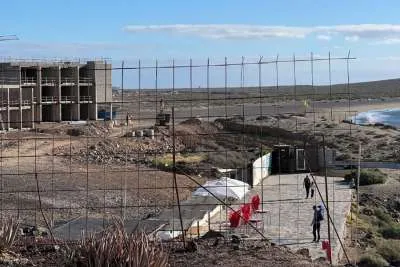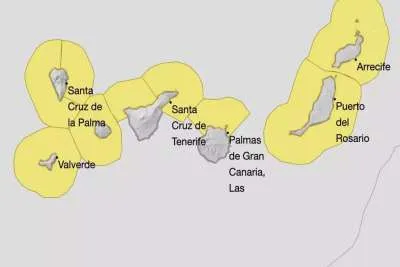New report on holiday lets in Spain reveals over 10,000 illegal workers without contracts
- 30-08-2025
- Business
- Canarian Weekly
- Photo Credit: El Periodico
The boom in holiday rental properties across Spain, including the Canary Islands, shows no sign of slowing down. By November 2024, there were 368,295 registered tourist homes offering more than 1.85 million beds – a figure that now exceeds the hotel sector’s capacity, according to the National Statistics Institute (INE).
However, this rapid growth is not without consequences. Alongside rising rents and pressure on residential housing, serious labour and social issues are emerging, as even though the property may be registered, many of the workers aren’t.
A new report by the UGT trade union, “Working Time and Wages in Tourist Accommodation”, estimates that while more than 26,500 people are employed in the sector, at least 10,900 of them, around 35%, are working without a contract. This underground economy represents an annual loss of more than €35 million in social security contributions.
Precarious working conditions
The majority of those affected are migrant women, many of them without legal residency papers. According to the report, they often endure precarious employment conditions: no contracts, lack of travel cost compensation, and insufficient health and safety protections.
Even those with contracts earn significantly less than hotel staff. Most receive the minimum wage (€9.26 per hour in 2025) or cleaning sector rates (€9.60 per hour), compared with €12.18 per hour for hotel housekeepers. This equates to a shortfall of between €2.50 and €3 per hour worked, effectively a quarter less pay.
UGT estimates that these workers miss out on between €13.8 and €16.5 million annually in contributions, raising the overall economic loss to more than €50 million per year.
A stark contrast with hotels
While holiday lets now outnumber hotels in terms of capacity (1.85 million vs. 1.17 million beds), they generate far fewer jobs. Figures from Exceltur show that holiday lets create just 3.4 jobs per 100 beds, compared with more than 12 in budget hotels and over 40 in luxury resorts.
In the Canary Islands, the impact is particularly notable. The archipelago now has over 50,000 holiday homes (5,000 more than in 2023) with Tenerife alone offering almost as many beds as its hotels.
As the debate over holiday rentals continues, the report highlights a growing challenge: balancing tourism growth with fair labour standards, housing availability, and the long-term sustainability of local communities.



























































